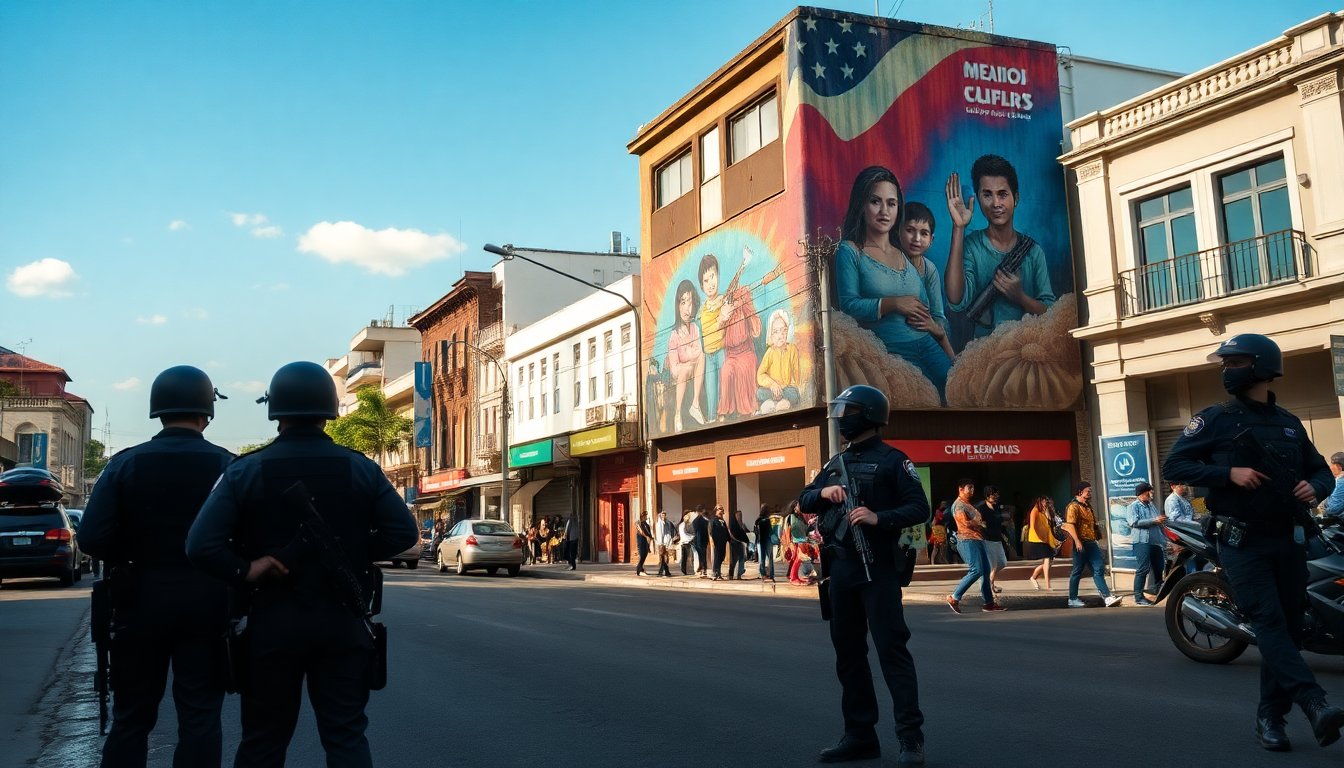Table of Contents
In a decisive response to the escalating violence in Michoacan, the government of Mexican President Claudia Sheinbaum has introduced a comprehensive security initiative aimed at combating organized crime. This announcement follows the assassination of Carlos Alberto Manzo, the mayor of Uruapan, which has triggered public outrage and underscored the urgent need for effective safety measures.
The death of Manzo, known for his outspoken opposition to organized crime, marks a disheartening milestone as the seventh mayor targeted in three years. His assassination has ignited protests in cities such as Morelia and Apatzingan, bringing to light the critical vulnerabilities local leaders face in areas plagued by cartel violence.
Michoacan plan for peace and justice
In response to these events, President Sheinbaum unveiled the Michoacan Plan for Peace and Justice during a press conference. This strategic initiative is backed by a significant financial commitment of 57 billion pesos (approximately 3.1 billion USD), aimed at bolstering security and addressing the root causes of violence.
Strengthening law enforcement
This comprehensive approach includes plans to enhance the capabilities of the Michoacan state police and the attorney general’s office. The federal government intends to deploy additional personnel from the National Guard and federal agents to provide essential support. While the exact number of troops has not been disclosed, the emphasis on collaboration among various security forces is evident.
Moreover, advanced technology, including helicopters, drones, and surveillance aircraft, will be employed to improve operational effectiveness. These tools are crucial for monitoring cartel activities and enhancing situational awareness in the region.
Addressing the root causes of violence
Beyond immediate security concerns, the plan also focuses on addressing the underlying issues that perpetuate the cycle of violence. Sheinbaum stressed the importance of tackling social inequalities and creating economic opportunities as part of the strategy. Investments will target welfare programs, agriculture, tourism, and infrastructure development.
Community engagement and support
Additionally, the government plans to establish a dedicated office within the state prosecutor’s office to investigate high-impact crimes such as homicide and extortion. This initiative aims to enhance intelligence gathering and improve the state’s capacity to respond to crime effectively.
Sheinbaum’s vision for restoring peace extends beyond law enforcement to include community engagement. Plans for biweekly security meetings, alert systems for local mayors, and support programs for victims of violence are integral to this holistic approach. The government seeks to promote social security and establish living wages for farmers, who often suffer from cartel extortion.
International response and ongoing challenges
The assassination of Mayor Manzo has drawn attention beyond Mexico’s borders. U.S. officials, including White House Press Secretary Karoline Leavitt, have condemned the violence and expressed support for Mexico’s efforts to combat drug trafficking and organized crime. Leavitt noted that U.S. President Donald Trump values Sheinbaum’s leadership and appreciates the ongoing collaboration between the two nations.
Despite these initiatives, challenges persist. Previous administrations have deployed military forces to Michoacan, yet violence from groups such as the Jalisco New Generation Cartel and Familia Michoacana remains difficult to mitigate. The ongoing struggle against organized crime requires sustained effort and innovative strategies to reclaim control over affected regions.
The death of Manzo, known for his outspoken opposition to organized crime, marks a disheartening milestone as the seventh mayor targeted in three years. His assassination has ignited protests in cities such as Morelia and Apatzingan, bringing to light the critical vulnerabilities local leaders face in areas plagued by cartel violence.0


